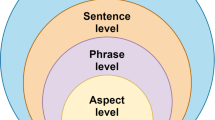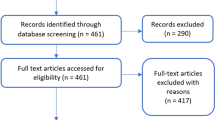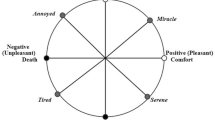Abstract
Learning affective state is determinate to online learning. Different affective states are associated with different online learning behaviors. Given the behavioral indicators of different affective states are still to be explored, this study constructed a data-driven online learning affective state detector by analyzing the learning log data of 269 students on an online learning platform. The accuracy and Cohen’s consistency validated the reliability of this affective state detector. This detector gives us an estimated probability that the student is in a state of confusion, engagement, frustration, and distraction. This method was used to analyze students’ affective states in an online course. It is found that active affective states such as concentration can promote students’ learning effectiveness. But negative affective states such as frustration, confusion, and distraction are not conducive to the student’s learning effectiveness. Hence, it is necessary to support students’ learning for those in negative affective states. Specifically, the learning materials could be refined to provide students in confusion with more detailed tips. Timely support is helpful for those students in frustration. Timely reminders and interventions are useful for distracted students to engage in learning. This study proposes a reliable method for learning affective state analysis and provides teachers with practical suggestions to improve students’ online learning.




Similar content being viewed by others
Availability of Data and Materials
The datasets used during the current study are available from the corresponding author on reasonable request.
Code Availability
Not applicable.
References
Akçapınar, G., Altun, A., & Aşkar, P. (2019). Using learning analytics to develop early-warning system for at-risk students. International Journal of Educational Technology in Higher Education, 16(1). Doi: https://doi.org/10.1186/s41239-019-0172-z
Anthony, B., Kamaludin, A., Romli, A., Raffei, A. F. M., Phon, D. N. A. L. E., Abdullah, A., & Ming, G. L. (2020). Blended learning adoption and implementation in higher education: A theoretical and systematic review. Technology, Knowledge and Learning. Doi: https://doi.org/10.1007/s10758-020-09477-z
Baker, R. S., & Inventado, P. S. (2014). Educational data mining and learning analytics. Doi: https://doi.org/10.1007/978-1-4614-3305-7_4
Barrett, L. F., & Russell, J. A. (1999). The structure of current affect: Controversies and emerging consensus. Current Directions in Psychological Science, 8(1), 10–14. https://doi.org/10.1111/1467-8721.00003
Chen, X., Zou, D., Kohnke, L., Xie, H., & Cheng, G. (2021). Affective states in digital game-based learning: Thematic evolution and social network analysis. PLoS ONE, 16(7), 1–24. https://doi.org/10.1371/journal.pone.0255184
Cohen, J. B., & Andradea, E. B. (2004). Affective intuition and task contingent affect regulation. Journal of Consumer Research, 31(2), 358–367. https://doi.org/10.1086/422114
Eldenfria, A., & Al-Samarraie, H. (2019). Towards an Online Continuous Adaptation Mechanism (OCAM) for enhanced engagement: An EEG study. International Journal of Human-Computer Interaction, 35(20), 1960–1974. https://doi.org/10.1080/10447318.2019.1595303
Evans, J. R., & Lindner, C. H. (2012). Business analytics: the next frontier for decision sciences. Decision Line, 43(2), 4–6. http://www.cbpp.uaa.alaska.edu/afef/business_analytics.htm
Forgas, J.P., Eich, E. (2012). Affective influences on cognition: Mood congruence, mood dependence, and mood effects on processing strategies. Handbook of Psychology, pp. 61–82.
Hess, U., & Thibault, P. (2009). Darwin and emotion expression. American Psychologist., 64(2), 120–128. https://doi.org/10.1037/a0013386
Holbrey, C. E. (2020). Kahoot! Using a game-based approach to blended learning to support effective learning environments and student engagement in traditional lecture theatres. Technology, Pedagogy and Education, 29(2), 191–202. https://doi.org/10.1080/1475939X.2020.1737568
Isen, A. M., Daubman, K. A., & Nowicki, G. P. (1987). Positive affect facilitates creative problem solving. Journal of Personality and Social Psychology, 52(6), 1122–1131. https://doi.org/10.1037/0022-3514.52.6.1122
Isen, A. M., Johnson, M. M. S., Mertz, E., & Robinson, G. F. (1985). The influence of positive affect on the unusualness of word associations. Journal of Personality and Social Psychology, 48(6), 1413–1426. https://doi.org/10.1037/0022-3514.48.6.1413
Kaur, P., Kumar, H., & Kaushal, S. (2021). Affective state and learning environment based analysis of students’ performance in online assessment. International Journal of Cognitive Computing in Engineering, 2, 12–20. https://doi.org/10.1016/j.ijcce.2020.12.003
Kew, S. N., & Tasir, Z. (2021). Learning analytics in online learning environment: A systematic review on the focuses and the types of student-related analytics data. Technology, Knowledge and Learning: Learning Mathematics, Science and the Arts in the Context of Digital Technologies.
Krithika, L. B., & Lakshmi, P. G. G. (2016). Student emotion recognition system (SERS) for e-learning improvement based on learner concentration metric. Procedia Computer Science, 85, 767–776. https://doi.org/10.1016/j.procs.2016.05.264
Lang, P. J. (1980). Behavioral treatment and bio-behavioral assessment: Computer applications. In J. B. Sidowski, J. H. Johnson, & T. H. Williams (Eds.), Technology in Mental Health Care Delivery Systems (pp. 119–137). Ablex.
Lehman, B., Matthews, M., DMello, S., Person, N. (2008). What are you feeling? investigating student affective states during expert human tutoring sessions. In: International Conference on Intelligent Tutoring Systems, pp. 50–59. https://link.springer.com/content/pdf/10.1007%2F978-3-540-69132-7_10.pdf
Li, M. X., Nadj, M., Maedche, A., et al. (2021). Towards a physiological computing infrastructure for researching students’ flow in remote learning. Technical Knowledge of Learning. https://doi.org/10.1007/s10758-021-09569-4
Mohan, K., Bergner, Y., & Halpin, P. (2020). Predicting group performance using process data in a collaborative assessment. Tech Know Learn, 25, 367–388. https://doi.org/10.1007/s10758-020-09439-5
Moon, J., Ke, F., & Sokolikj, Z. (2020). Automatic assessment of cognitive and emotional states in virtual reality-based flexibility training for four adolescents with autism. British Journal of Educational Technology, 51(5), 1766–1784.
Moridis, C., & Economides, A. A. (2009). Mood recognition during online self-assessment test. IEEE Transactions on Learning Technologies, 2(1), 50–61.
Pardos, Z. A., Baker, R. S. J. D., San Pedro, M. O. C. Z., Gowda, S. M., & Gowda, S. M. (2014). Affective states and state tests: Investigating how affect and engagement during the school year predict end-of-year learning outcomes. Journal of Learning Analytics, 1(1), 107–128.
Qi-rong, C. (2010). Research on intelligent tutoring system based on affective model. Proceedings of the second international conference on multimedia and information technology (MMIT), IEEE, 7–9. Doi: https://doi.org/10.1109/MMIT.2010.127
Queiroga, E. M., Cechinel, C., Matsumura, A. R., & da Costa Bretanha, G. (2016). Generating models to predict at-risk students in technical e-learning courses. XI Latin American Conference on Learning Objects and Technology, 44, 1–8. https://doi.org/10.1109/LACLO.2016.7751770
Reis, R. C. D., Isotani, S., Rodriguez, C. L., Lyra, K. T., Jaques, P. A., & Bittencourt, I. I. (2018). Affective states in computer-supported collaborative learning: Studying the past to drive the future. Computers & Education, 120, 29–50. https://doi.org/10.1016/j.compedu.2018.01.015
Scheiter, K., Schubert, C., Schüler, A., Schmidt, H., Zimmermann, G., Wassermann, B., Krebs, M.-C., & Eder, T. (2019). Adaptive multimedia: Using gaze-contingent instructional guidance to provide personalized processing support. Computers & Education, 139, 31–47. https://doi.org/10.1016/j.compedu.2019.05.005
Schwarz, N., & Herbert, B. (1991). Happy and mindless, but sad and smart? The impact of affective states on analytic reasoning. Emotion and Social Judgments, 23, 55–71. https://doi.org/10.4324/9781003058731-4
Sideridis, G. D., Kaplan, A., Papadopoulos, C., & Anastasiadis, V. (2014). The affective experience of normative-performance and outcome goal pursuit: Physiological, observed, and self-report indicators. Learning and Individual Differences, 32, 114–123. https://doi.org/10.1016/j.lindif.2014.03.006
Sottilare, R.A., Proctor, M. (2012). Passively classifying student mood and performance within intelligent tutors. Journal of Educational Technology & Society, 15 (2), 101–114.
Tenório, K., Dermeval, D., Monteiro, M., Peixoto, A., & Pedro, A. (2020). Raising teachers empowerment in gamification design of adaptive learning systems: A qualitative research. International Conference on Artificial Intelligence in Education, 12163, 524–536. https://doi.org/10.1007/978-3-030-52237-7_42
Threadgill, A. H., & Gable, P. A. (2019). Negative affect varying in motivational intensity influences scope of memory. Cognition and Emotion, 33(2), 332–345. https://doi.org/10.1080/02699931.2018.1451306
Tian, F., Gao, P., Li, L., Zhang, W., Liang, H., Qian, Y., & Zhao, R. (2014). Recognizing and regulating e-learners’ emotions based on interactive Chinese texts in e-learning systems. Knowledge-Based Systems, 55, 148–164. https://doi.org/10.1016/j.knosys.2013.10.019
Wang, S. L., & Wu, C. Y. (2011). Application of context-aware and personalized recommendation to implement an adaptive ubiquitous learning system. Expert Systems with Applications, 38(9), 10831–10838. https://doi.org/10.1016/j.eswa.2011.02.083
Wang, Y., & Liu, Q. (2020). Effects of online teaching presence on students’ interactions and collaborative knowledge construction. Journal of Computer Assisted Learning, 36(3), 370–382.
Wang, Y., Liu, Q., Chen, W., Wang, Q., & Stein, D. (2019). Effects of instructor’s facial expressions on students’ learning with video lectures. British Journal of Educational Technology, 50(3), 1381–1395. https://doi.org/10.1111/bjet.12633
Yang, D., Alsadoon, A., Prasad, P. W. C., Singh, A. K., & Elchouemi, A. (2018). An emotion recognition model based on facial recognition in virtual learning environment. Procedia Computer Science, 125, 2–10. https://doi.org/10.1016/j.procs.2017.12.003
Zotou, M., Tambouris, E., & Tarabanis, K. (2020). Data-driven problem based learning: Enhancing problem based learning with learning analytics. Educational Technology Research and Development, 68, 3393–3424. https://doi.org/10.1007/s11423-020-09828-8
Acknowledgements
Thank you to all contributors who spent their time to this study.
Funding
This work was supported by the Project of National Natural Science Foundation of China (No. 62107023), the Humanities and Social Sciences Program of the Ministry of Education (No. 21YJC880076), the Philosophy and Social Science Research project of Jiangsu Higher Education (No. 2021SJA0247), and Natural Science Research Project of Jiangsu Higher Education Institution (No. 21KJB120012), and the project of the 14th Five-Year Plan of Jiangsu Provincial Education Science (No. D/2021/01/123).
Author information
Authors and Affiliations
Contributions
YW designed, collected, and analyzed the data. She was a major contributor in writing the manuscript.
Corresponding author
Ethics declarations
Conflict of interest
The author declares that there is no competing interest.
Additional information
Publisher's Note
Springer Nature remains neutral with regard to jurisdictional claims in published maps and institutional affiliations.
Rights and permissions
About this article
Cite this article
Wang, Y. Affective State Analysis During Online Learning Based on Learning Behavior Data. Tech Know Learn 28, 1063–1078 (2023). https://doi.org/10.1007/s10758-022-09597-8
Accepted:
Published:
Issue Date:
DOI: https://doi.org/10.1007/s10758-022-09597-8




